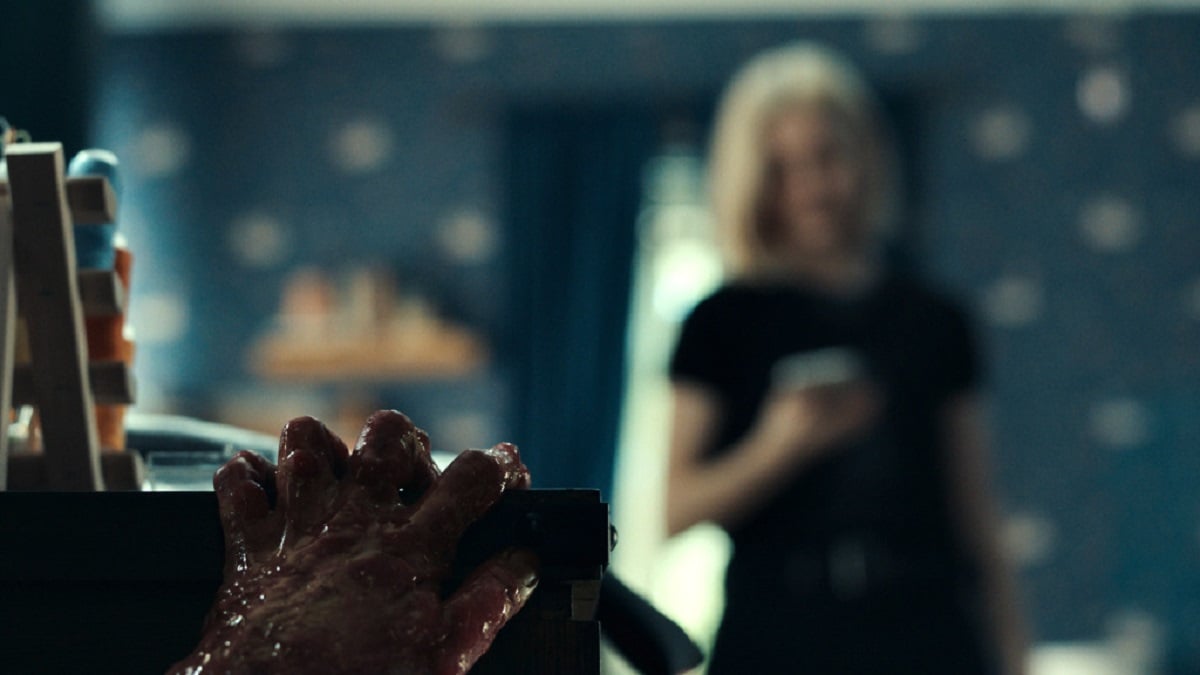Horror has always had a penchant for commenting on timely, relevant, and topical social themes under the guise of gruesome goings-on, a trend that continues in Anna Zlokovic’s Appendage (edited on Adobe Premiere Pro), which is now streaming on Hulu.
Adapted from Zlokovic’s five-minute short of the same name that initially aired as part of the platform’s Bite Size Halloween series, Hadley Robinson stars as Hannah, a young fashion designer afflicted with self-doubts, anxiety, and depression. Relatable themes that a lot of people can sympathize with, at least until her insecurities quite literally manifest as a growth that forcibly extricates itself from her body and sets out to cause chaos, wreak havoc, and destroy her life from the inside out.
With Appendage now available to Hulu subscribers everywhere, We Got This Covered had the chance to talk to Zlokovic about her new movie, and in our chat we cover the pressures of extending a five-minute short into an entire feature, the tonal tightrope required in dealing with mental health issues through the lens of body horror, making the most of a limited budget and production schedule, dream projects and much more, which you can check out below.
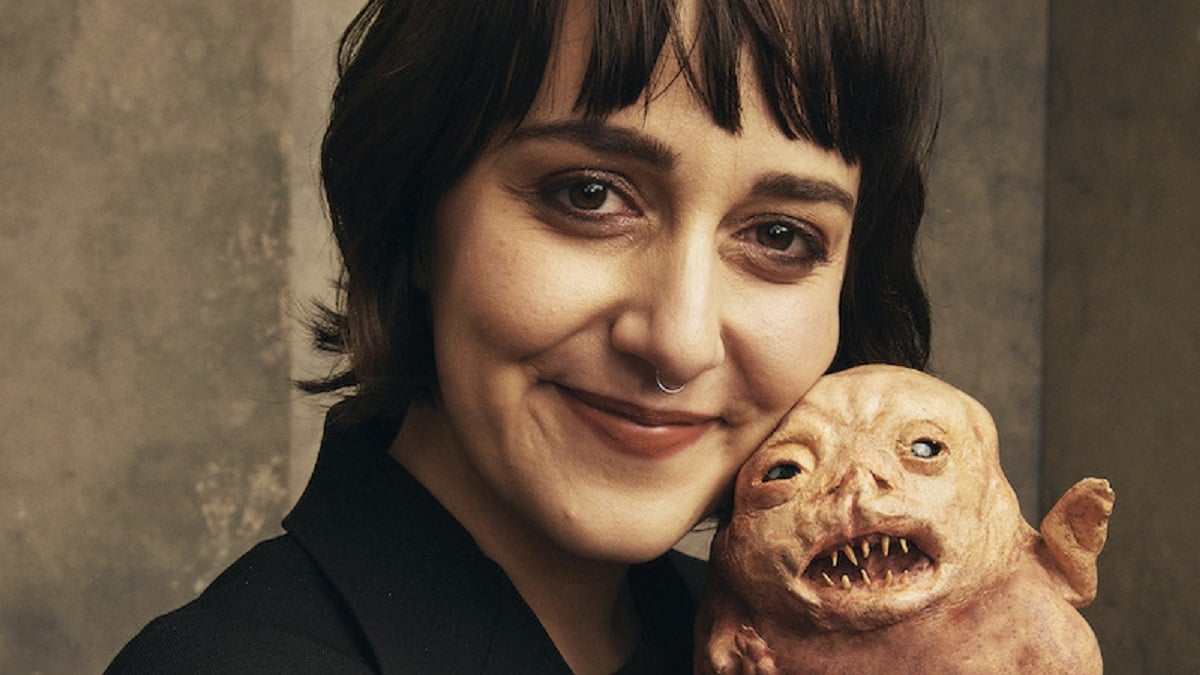
It’s been a couple of years since the short and a while since you shot, so how does it feel having the feature-length Appendage out there in the world for everyone to discover?
Anna Zlokovic: It’s really exciting. You know, it’s really hard to make movies, to get them greenlit, and to finish them. And it’s just very, very exciting to have been able to do that. I’m really grateful. And even just the fact that it’s sort of a kind of wild freak of a movie they let me make is even more fulfilling, because you know, it’s just hard. There’s so many mandates these days of how to make a movie, and original ideas are just kind of falling by the wayside. So it’s really cool to have that opportunity.
Was the idea developed specifically as a short-form concept, or when you were putting the story together in your head were you always thinking beyond that of what it could or would look like as a feature were you given that opportunity?
Anna Zlokovic: It was purely a short at first, that was sort of the program that I was a part of was making, these little Bite Size Halloween short films. And I guess in the back of my mind, I was like, “Okay, I can see this being a feature, I can see some of the concept expanding.” But I didn’t start working on the feature film until after the short film was released on Hulu. So it was a very, very, very quick process that was super instinctual and very, very quick.
Once the full-length version of Appendage got the green light, what was your process from there in terms of taking a premise that sustained a 5-minute short and then expanding it out into something that would run for an hour and a half?
Anna Zlokovic: I mean, it’s a challenge. It’s definitely a challenge. And I’ve never done a short-to-feature before. So it has its trappings, which are interesting to try to avoid. And I think the biggest challenge for me personally and creatively was how do I make the feature stand alone, and be different from the short, and not just necessarily be like a ripoff of the shorts.
So it was cool for me to focus in on what the movie meant, and how I could use that as a motivating factor for the narrative. And we have this little monster that in the short film that is just wreaking havoc on her life, and I was like, “Okay, I think in the future, we can actually show it wreaking havoc in all these different areas of her life, and kind of expand it that way and try to come up with a mythology to explain why it exists.” That’s kind of interesting and different. And that stuff was all inspiring.
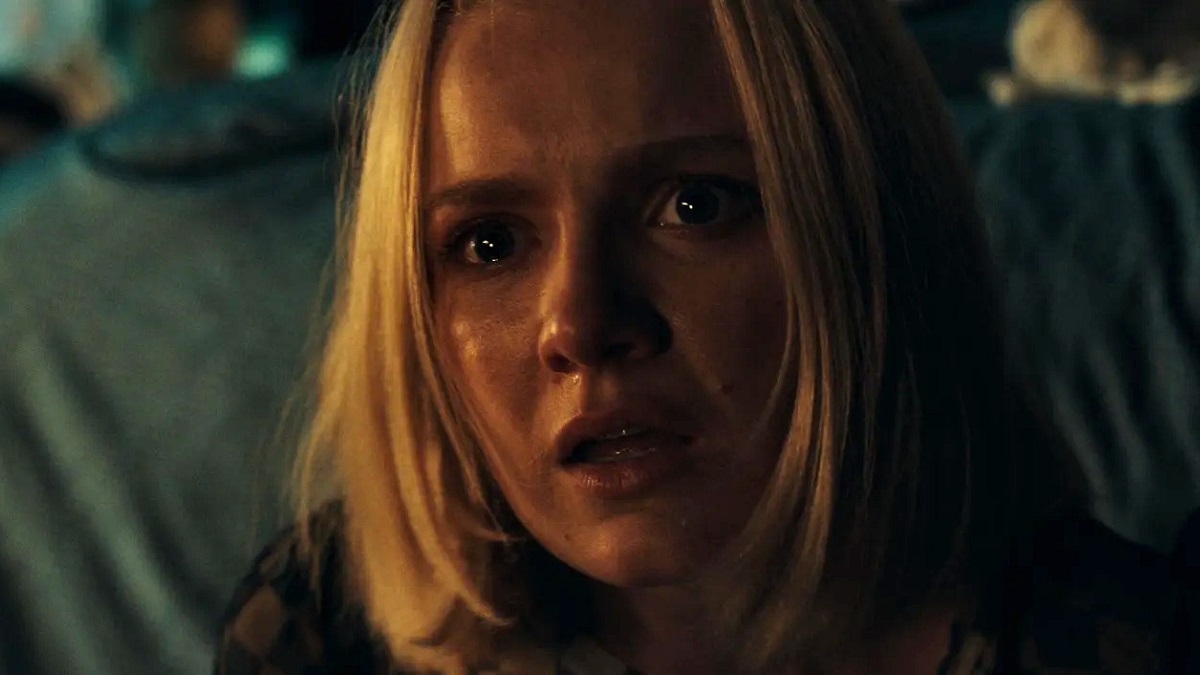
There’s obviously a huge expansion of the lore behind the appendages, so was that something you’d always had in the back of your mind since the short, or was it more a case of working backwards and then outwards from what you’d already established?
Anna Zlokovic: I was definitely backwards and forwards and just sort of in all directions! And you know, I hadn’t had that mythology worked out with the short so I was like, “How the hell am I gonna explain this with some kind of logic?!?” and the dual DNA mythology, I had heard about dual DNA and this disease called fetus in fetu, I think I was listening to some podcast that was talking about it.
And I was like, “This seems perfect.” And dual DNA is a real thing where people absorb their twin in the womb, and then they have two sets of DNA. And so I was excited by that, and kind of elevating that in a sci-fi world, but also having it be a real thing in our world, was kind of crazy and cool. So that was how that came about, and then I was like, “You know what? Let’s just expand on it and see what we what we come up with.”
It would be fair to say there’s a lot of plates being spun at once, often in the space of the same scene, whether it’s the personal and family drama, psychological thrills, body horror, or even moments of absurdity and black comedy, but were you always cognizant both during writing and shooting and then into post that you had this tonal tightrope to walk, or was it more a case of letting the best version of what you’d written and shot present itself to you?
Anna Zlokovic: It was always a tightrope walk. I mean, it’s a really weird, difficult tone to manage. And that was what excited me about it, I didn’t want to just make it fully scary or fully funny, because I felt that that was diminishing of the experience of going through a mental health crisis. And so I saw it as an opportunity to say, “Okay, when are our moments of sincere psychological drama?” When are the moments where we can actually be like, “Okay, this is a little funny.”
The thoughts that we have are so absurd and terrible, we shouldn’t be allowed to laugh at them. But ultimately, they affect Hannah in this really negative way. So it was a moment to moment constant tightrope walk from the script phase, even into color correction at the end, where we’re like, “Okay, it’s looking a little too scary, people should be allowed to laugh in this moment.”
I mean, it was a constant, constant thing. I think that is… ultimately, the job of a director is to manage tone, and to make sure that all of that is coming across correctly, and this tone was a toughie. But I love that kind of genre blend for this movie, specifically.
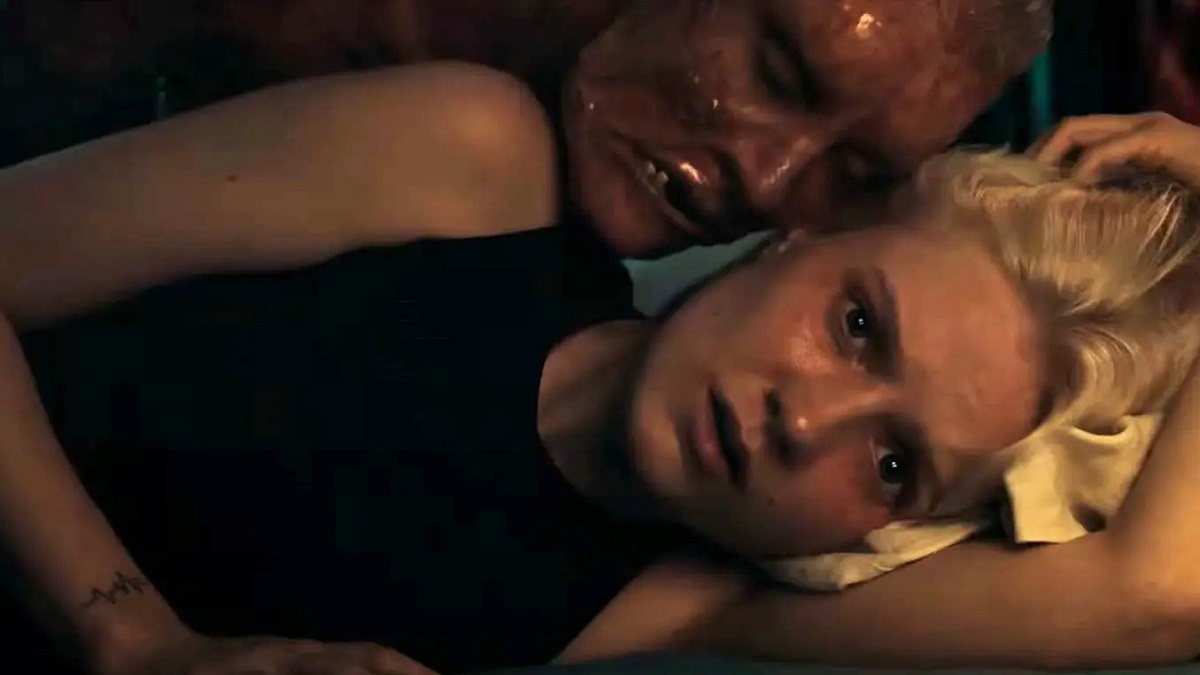
In the nicest possible way, it’s a weird movie, but it’s also one that has a completely identifiable story that a lot of people can easily invest and see themselves reflected in, but was trying to hit that sweet spot between the thematic subtext and the out-there horror one that posed any challenges, or was honing in on the rhythm and tone you’d envisioned easier than maybe you thought it might have been?
Anna Zlokovic: It was all challenging, it was all challenging. And thank you for saying that. It was definitely the goal, because it’s interesting to try to make a movie that is bizarre and weird. And that’s part of the goal, to make it stand out, and to also say something unique in a different way that we haven’t heard before. But then, to also make it accessible to people. So they’re like, “Oh, I can follow this story. It’s not just completely out there.”
And it’s weird to do something like that, and bizarre, and definitely, definitely a challenge. But the ultimate goal being people, you know, walking away from the film and saying, “Oh, I understood the themes of this, I understood what this was about, I feel comfortable talking about my appendage or my intrusive thoughts,” and if that can succeed, at least for some people, that’s exciting to me.
Dealing with anxiety, depression, and mental health through the lens of body horror isn’t an easy thing to pull off, but no matter how outlandish or bizarre things get in Appendage, Hannah’s journey is always at the very forefront from beginning to end, so was it easier to strike that balance and revel in the weirdness when there was always one constant anchoring everything from the first frame to last?
Anna Zlokovic: That’s a great question. I definitely, I think that was the guiding light of the whole movie. Without Hannah’s arc, and without her psychological drama with her mom, and just the way that she intakes the world; if that arc wasn’t there, I think definitely the movie wouldn’t have a foundation at all.
So that definitely was a guiding light. As we were moving through, on set, you’re shooting everything out of order, like completely out of order because of the budget restrictions, and the time, and so many factors. And for me, it was so important to just look at the script, and where’s Hannah at, and talk to Hadley and be like, “This is where she is in her arc. Okay, we know what this means. I know what that means for the tone.”
And we can move forward, I can communicate to Powell [Robinson], our DP, or Michelle [Patterson], our PD, or Naomi [Wolff Lachter], our costume designer, we can all be like, “This is where she’s at. We’re allowed to be funny, we’re allowed to be absurd. We’re allowed to have drama right now.” And that, as you pointed out, was super, super important.
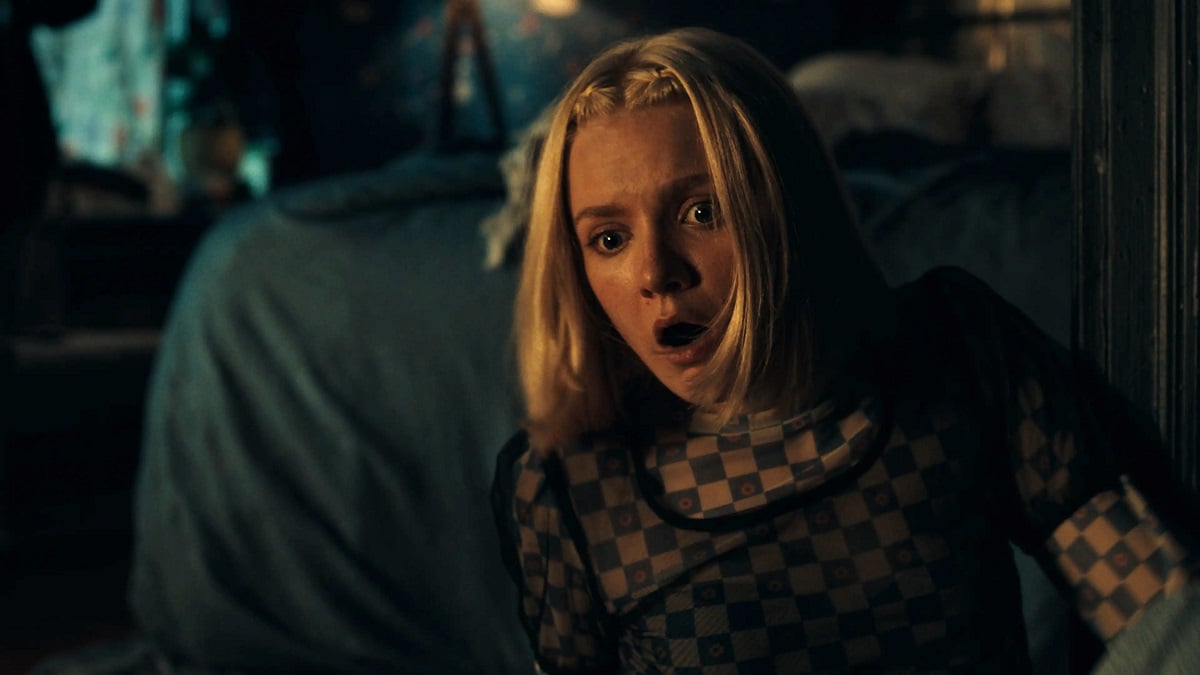
Hannah is a complex character dealing with issues that plenty of audience members are going to recognize and identify with, and with Hadley in pretty much every scene of the film giving a performance that’s not easy to give, so was there a lot of communication and collaboration between you guys in prep and during shooting to build that character and performance, or were you both on the same page from the very beginning?
Anna Zlokovic: I would say we were on the same page from the beginning, which is why I was so excited. I was like, “Oh, wow, we really understand each other.” Hadley is so immensely talented, it blows my mind. Like, what she did is exactly right. It is unbelievable. And so difficult. And so, we just had the same taste, we clicked, and then we were communicating constantly, as much as we could.
We didn’t have a lot of prep time, we couldn’t even have rehearsals because it was such a tight timeline. So it was so much about communicating clearly with each other, understanding what the character was, we would be texting all the time, we’re talking. And then you know, Hadley, also speaking to the other actors independently, and then having their conversations as well. They were just really dedicated to getting it right, which was amazing.
The creature designs are obviously and inevitably an upgrade from the short, but was that a difficult decision-making process to settle on the – evolutions, shall we say – of the appendages? The basic version isn’t that different from what we’ve seen before, but after that it becomes a whole different ball game.
Anna Zlokovic: It was tough. It was very tough. And I have been working with Amber Marie, who designed all the creatures, for probably eight years or something like that. And she also did the short. So without that shorthand, I don’t think it would have been possible. We obviously, ahead of time, understood that we’re doing this practically, just like we did on the short, which means the first chunk of money needs to go to Amber as soon as possible, so she can start working on these creatures.
And so they had a little bit of an extended timeline, but it was still so tight for what Amber had to do. And so, yeah, you know, Amber and I, we would just be texting every single day, our collaboration is so developed already, so we have that communication with each other, and being able to see her 3D model stuff, or work with, an artist, a sculptor, or we worked with this amazing digital artists who put together all these amazing images from the first stage to the little toddler appendage.
And, you know, just having Amber be able to mediate those conversations and having that connection with her was the only way we got it done on that timeline, and her amazing team being super dedicated, and kind of having a clear vision for what was necessary. Otherwise, it’s like, I don’t know, what are we gonna do? So it was, I feel grateful that she was able to do this.
Some of the themes are worn on Appendage’s sleeve, but there are some more subversive undertones and thematic ambiguity threaded throughout as well, so it’s easy to imagine that different audiences will interpret the film in different ways depending on the who, what, when, where, and why of their own circumstances, but is that something you can deliberately aim for as a filmmaker, or is more a case of a story that’s personal to you on so many levels connecting with different people in different ways?
Anna Zlokovic: I think that’s all you can do, is sort of try to make something as sincere as you can, and to the best of your abilities. And this concept is obviously and purposefully a little bit on the nose, if not a lot on the nose. And so that helps, and the majority of people walking away and being like, “Yeah, it’s about mental health, and it’s about anxiety.”
Obviously, that is super clear, but all the nuances of, you know, Hannah’s relationship with her mom or her friends, and all of that, I think seeps into people’s consciousnesses in a more specific way, based on like you said, what they’re going through, and that you definitely can’t control. And that’s exciting.
And again, that comes from a sincere place as a creative person as well. And you just hope that in being vulnerable, that other people will pick up on that and do what they want with it, which is so beautiful. And I think what’s amazing about filmmaking in general.
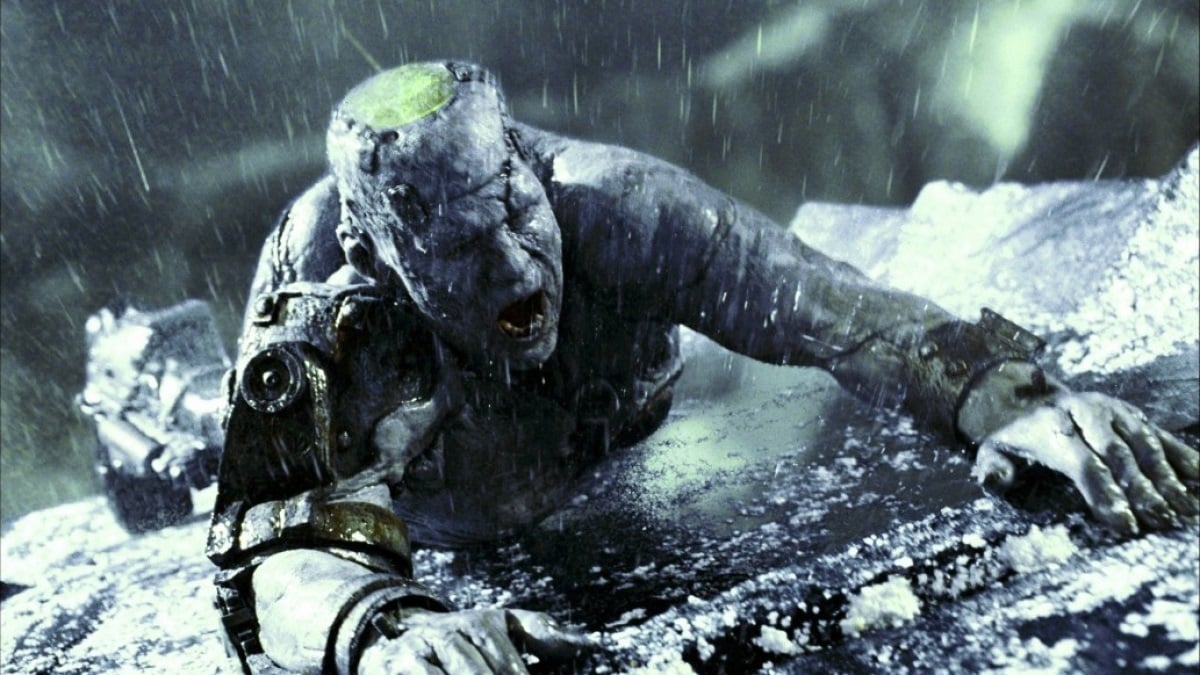
A lot of your work – whether it’s Shorty, Luna & Lars, Sight, and now Appendage – are rooted in genre, but deal in bigger and broader themes that are everywhere in life, society, and culture. Is that your preferred method of finding your way in as a filmmaker, or is more dependent on where you are at what time and place in your life when the ideas come to you?
Anna Zlokovic: These are great questions. Amazing questions. Um, it’s a bit of both, I would say. I don’t know how to approach a movie without knowing what it’s about or what the message is, or what the themes are, I just don’t even know how to start. So if I’m reading a script, I need to connect to it on that level, or it needs to have some kind of a greater thing. And if it doesn’t, then you know, that’s rare. I’ve made stuff that’s just like really fun for no reason, but there’s always some kind of emotion motivating it. So I think that, without that, it’s tough to approach something, or you can feel that it doesn’t have energy to it or something.
You’ve been happy to hop between multiple different genres across your career so far, but are there any on the bucket list that you’d love to tick off and dive into sooner rather than later?
Anna Zlokovic: Hmm. I obviously love psychological horror, obviously, everything you’ve mentioned that I’ve done, and I’ve done a little bit of sci-fi, I think doing sci-fi on a larger scale would really excite me. And honestly, doing a psychological drama that’s just actors in a room sounds super cool. Maybe something to do down the line. But just something where I can just work with actors and drama sounds so fun.
Along similar lines, then, if you could direct any project of your choosing – as in, you can make whatever you want however you want and it can cost as much as you want – what would it be and why would it be that?
Anna Zlokovic: Wow, that is a good one. That is on the spot, that’s for sure. I mean, look, I think that being able to direct an original idea with an unlimited budget sounds amazing. You know, I hesitate to even say that, because I actually think constraints are really good. So I think having not exactly everything you need can push you to be more creative. But I think it’s amazing.
I saw The Creator, I think it was last week. And I was like, “Wow, Gareth Edwards got to do this original idea and really pull it off with this immense budget.” And that sounds really exciting and cool, and fun, and so I think that would be a really amazing experience as an artist. By the same coin, I think that in terms of something that’s IP, I’ve been obsessed with Frankenstein since I was a kid. I think that there’s some things… I made a music video that was kind of Frankenstein in 2016.
I just find that character to be so tragic, and relatable in a kind of crazy way where it’s like, we all feel like this monstrous creation, and how do we kind of move through the world? And how can we relate to that? And that really fascinates me, and he’s very emotional to me. So I would hope to do that one day.
If it ever happens, and your $200 million Frankenstein gets announced, we’ll remember this as the day it got put out into the world.
Anna Zlokovic: Yeah, we put it out into the world. We’re, you know, good vibes.
Hopefully everyone keeps on doing what they’ve been doing and continues watching the movie.
Anna Zlokovic: Thank you so much. I really appreciate it. And thank you for all the thoughtful questions. It just feels so nice to talk to somebody who’s so thoughtful. So I really appreciate it.
Appendage is streaming now on Hulu, and on Disney Plus in certain regions where Hulu is unavailable.

